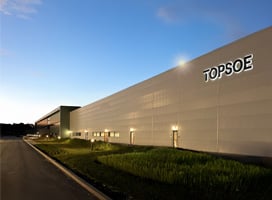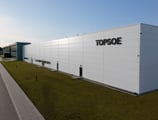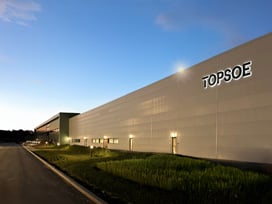A game changer for refineries and biorefineries dealing with phosphorous contamination
Increase feed flexibility and cycle lengths: TK-3000 PhosTrap™ minimizes carbon buildup along the catalyst layer and offers far greater phosphorus absorption than any traditional catalyst. The result is significant protection against pressure-drop buildup and activity loss, ensuring optimal cycle length in renewable and conventional fuel units.
A trusted partner to conventional and renewable refineries alike
We have been a trusted partner for the refining industry for over 80 years, providing our advanced catalysts and process technologies to optimize refinery operations. Our solutions are designed to enhance efficiency, maximize yields, and meet stringent environmental regulations.
As the world’s energy needs shift toward increased resilience and flexibility, we have applied our conventional refinery expertise to develop advanced catalysts for biorefineries. These catalysts are specifically engineered to efficiently convert bio-feedstocks, such as vegetable oils, animal fats, and waste oils, into renewable fuels, overcoming unique challenges like high oxygen content and impurities, while ensuring high yields and exceptional product quality.
A highly efficient phosphorus guard catalyst
The TK-3000 PhosTrap catalyst is a highly efficient phosphorus guard catalyst developed to protect downstream catalysts and equipment from phosphorous poisoning. Phosphorus contents are especially high in bio-based feedstocks like vegetable oils, animal fats, and waste oils, but are also present in conventional feedstocks.
By trapping phosphorus, TK-3000 extends the lifespan of downstream catalysts, enabling longer run cycles and reducing the frequency of catalyst replacements. This not only minimizes unplanned downtime but also increases overall plant uptime and operational reliability. Additionally, the catalyst’s high capacity for phosphorus removal reduces the formation of phosphorous glass, contributing to safer unloading and faster turnaround times.
Read the "Catalysts for renewable fuels production" article in the Decarbonisation Magazine: https://decarbonisationtechnology.com/article/327/catalysts-for-renewable-fuels-production
.png)








![SAF Airplane runway[1]-1 1](https://www.topsoe.com/hs-fs/hubfs/SAF%20Airplane%20runway%5B1%5D-1%201.png?width=800&height=640&name=SAF%20Airplane%20runway%5B1%5D-1%201.png)



